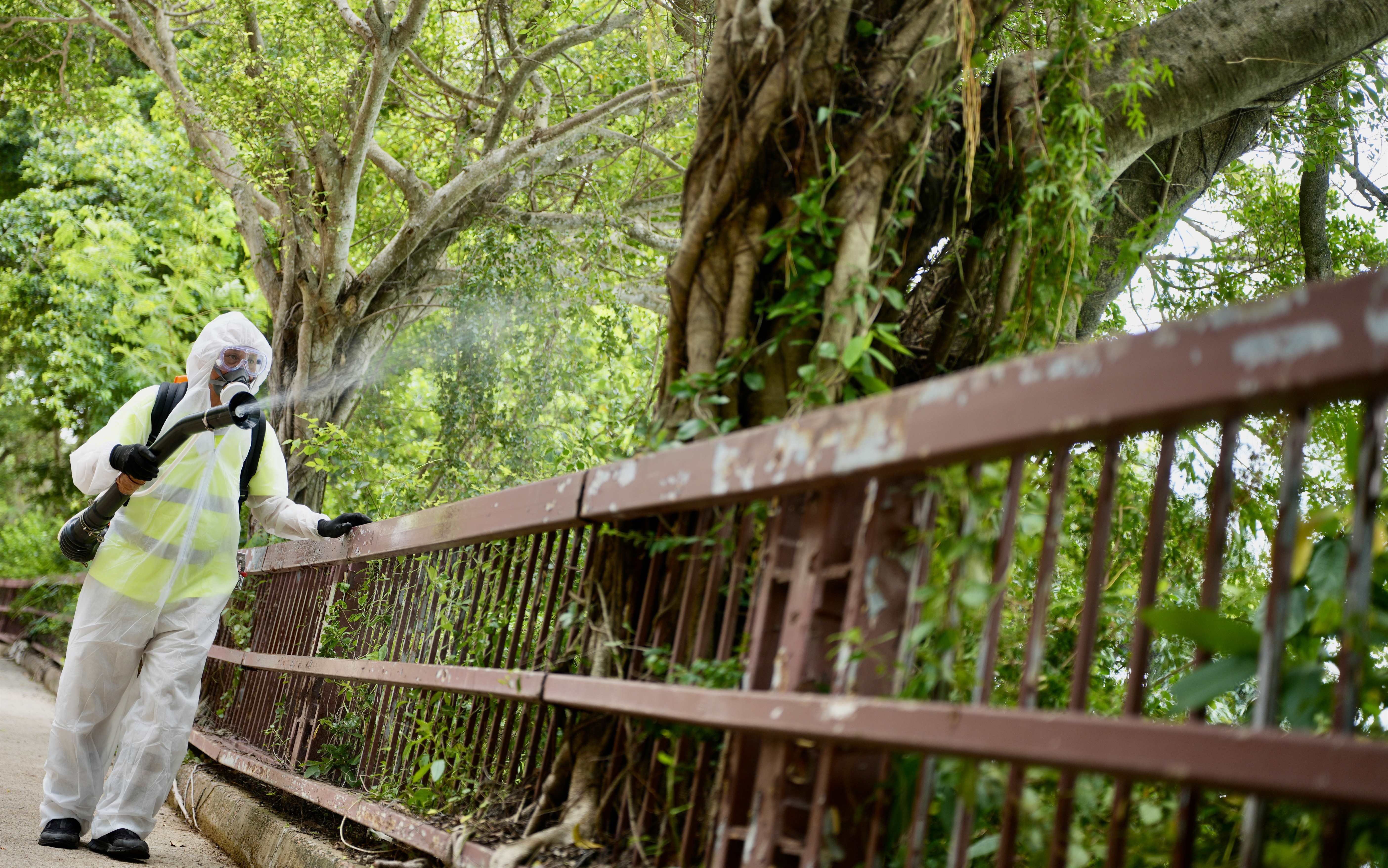
The Centre for Health Protection (CHP) announced three new imported chikungunya cases on Wednesday, urging the public to remain vigilant against mosquito-borne diseases.
One case involves a 79-year-old woman from the Southern District who traveled to Foshan, Guangdong province, from July 1-31. She developed fever and joint pain on Tuesday and was admitted to Queen Mary Hospital on Wednesday. Laboratory tests confirmed a chikungunya infection.
The other cases involve a 55-year-old man with underlying conditions and his 10-year-old son from Kwai Tsing district. They visited Bangladesh from July 12 to Sunday. The man became ill on July 27, while the boy developed symptoms on Friday. Both tested positive for chikungunya after seeking treatment in Hong Kong. Their two household contacts remain asymptomatic and under medical surveillance.
EXPLAINER: What is chikungunya fever?
The CHP has alerted health authorities in Guangdong and Bangladesh and continues epidemiological investigations. Residents are reminded to eliminate mosquito-breeding sites and take protective measures, especially when traveling. Avoiding mosquito bites remains the key to preventing chikungunya, officials said.

These three new cases bring the total number of chikungunya fever cases recorded in Hong Kong this year to four, all of which were imported. The first case was on Saturday and involved a 12-year-old boy who developed fever, rash, and joint pain after traveling to Foshan in July. Between 2016 and 2019, Hong Kong recorded between one to 11 cases of chikungunya fever each year, all of which were imported.
In a statement issued on Wednesday, the Food and Environmental Hygiene Department (FEHD) highlighted that August marks Hong Kong's rainy season, which fosters rapid mosquito breeding due to hot and rainy conditions. The department urged all sectors to collaborate in controlling mosquitoes.
READ MORE: Scientific committee: HK at risk of more imported cases of chikungunya
The department pledged to work closely with relevant authorities and stakeholders to enhance mosquito control measures. This initiative involves clearing stagnant water in high-risk areas like construction sites, as well as eliminating adult mosquitoes.
Residents were advised to take special mosquito prevention and control measures at home and in other environments during heavy rain. These precautions include inspecting outdoor areas and household items to prevent water accumulation, a breeding ground for mosquitoes.
Additionally, residents should cover water containers such as buckets and basins regularly to deter mosquito breeding.
Albert Au Ka-wing, the head of the Communicable Disease Branch of the CHP, reminded residents to adopt precautions in the rainy season against mosquito-borne diseases. Those returning from areas affected by such diseases are advised to apply insect repellent for 14 days upon arrival in Hong Kong. They should also monitor their personal health condition closely, in particular symptoms such as fever, joint pain and rash.
READ MORE: Hong Kong sees first case of chikungunya fever since 2019
Au suggested that residents should seek medical advice promptly if they feel unwell, and share their travel details with their doctor for clinical diagnosis and appropriate testing tailored to their individual health condition.
He also urged residents not to self-medicate, particularly with aspirin or non-steroidal anti-inflammatory drugs, such as ibuprofen. These drugs may cause serious side effects and even potentially fatal complication, particularly for children, Au noted.


